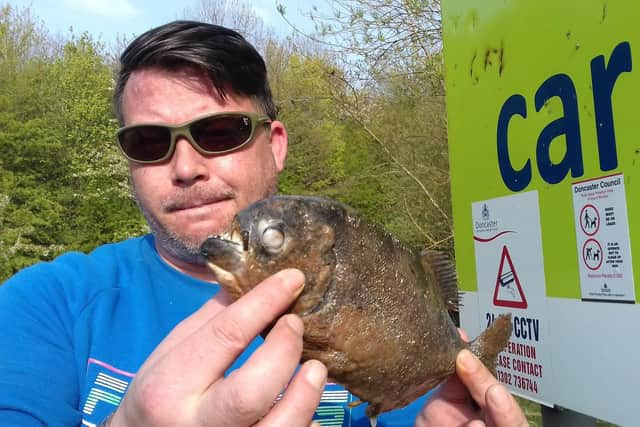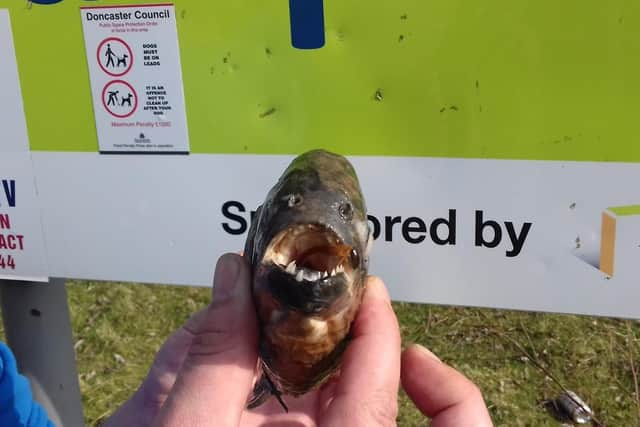Council issues ‘stay away from water’ warning after piranhas found in Doncaster lake


Two of the razor-toothed fish have been pulled from Martinwells Lake at Edlington over the last few days – although the animals were dead and are thought to have been pets that have been dumped.
But with Easter approaching, council bosses have urged people to steer clear of the town’s lakes.


Advertisement
Hide AdAdvertisement
Hide AdGill Gillies, assistant director of environment at Doncaster Council said: “Given the natural habitat of piranhas, it is highly unlikely that the fish were alive at any time in the lake.
“We assume that these were pets that were placed in the lake, something that we would strongly discourage people from doing.
“The presence of a piranha is somewhat of a novelty so they have since been taken away by the Environment Agency for testing.


“In any event we would always strongly advise against anyone paddling or swimming in this or any lake due to the dangers of deep water.”
Advertisement
Hide AdAdvertisement
Hide AdWe revealed earlier this week that angler Davey White had found a dead piranha at the lake on Monday afternoon while out on an afternoon stroll.
Shortly afterwards, it was revealed that a second walker, Toni Hooper, had also discovered a dead piranha floating in the lake – and she also spoke of her concerns of ducklings and fish vanishing from the beauty spot in recent weeks.
The story has since made headlines across the globe.
The Environment Agency is carrying out tests on the fish found at the lake, which is also known as Edlington Brick Pond.
A spokesman said: “Piranhas are not native to England and do not belong in our rivers and lakes.
Advertisement
Hide AdAdvertisement
Hide Ad“These fish do not easily survive or feed at temperatures below 100C and readily succumb to the cold of northern winters.
“Nevertheless, we would encourage anyone that keeps exotic fish and which may have outgrown their tanks, to contact a specialist able to advise on how best to deal with them.”
It is illegal to release or transfer fish in England without the appropriate permit. It is also illegal to keep non-native species in the wild without a permit.
Some non-native fish can survive in the wild in the UK and, once introduced, can be invasive. They can have a significant and irreversible impact on native fish stocks and wildlife, including carrying exotic diseases, which native stocks may have no protection against.
Advertisement
Hide AdAdvertisement
Hide AdThe maximum fine for summary conviction under the Keeping and Introduction of Fish Regulations 2015 is £50,000.
Known for their sharp teeth and powerful jaws, piranhas are known to have killed humans – although attacks on people are rare.
In 2011, a drunk 18-year-old man was attacked and killed in Bolivia, a five-year-old Brazilian girl was attacked and killed by a shoal in 2015 and in 2016 a Brazilian girl died after her grandmother’s boat capsized during a family holiday.
